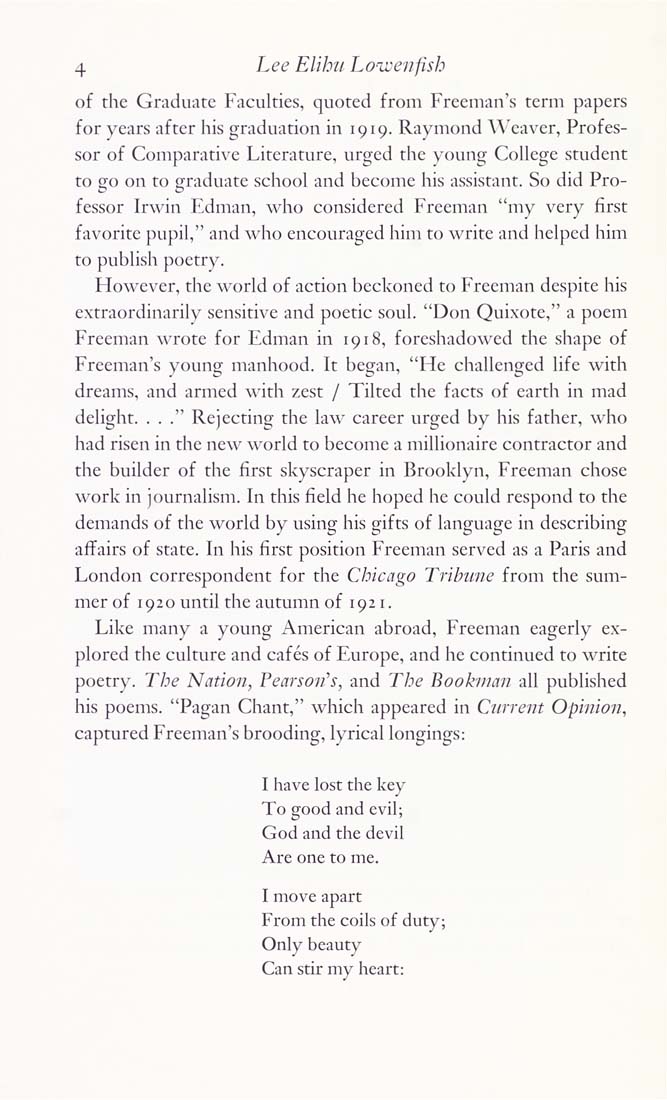Columbia Library columns (v.27(1977Nov-1978May))
(New York : Friends of the Columbia Libraries. )
|
||
|
|
|
|
| v.27,no.2(1978:Feb): Page 4 |

4 Lee Elihu Lowenfish of the Graduate Faculties, quoted from Freeman's term papers for years after his graduation in 1919. Raymond AVeaver, Profes¬ sor of Comparative Literature, urged the young College student to go on to graduate school and become his assistant. So did Pro¬ fessor Irwin Edman, who considered Freeman "my very first favorite pupil," and who encouraged him to write and helped him to publish poetry. However, the world of action beckoned to Freeman despite his extraordinarily sensitive and poetic soul. "Don Qui.xote," a poem Freeman wrote for Edman in 1918, foreshadowed the shape of Freeman's young manhood. It began, "He challenged life with dreams, and armed wirh zest / Tilted the facts of earth in mad delight. . . ." Rejecting the law career urged by his father, who had risen in the new world to become a millionaire contractor and the builder of the first skyscraper in Brooklyn, Freeman chose work in journalism. In this field he hoped he could respond to the demands of the world by using his gifts of language in describing affairs of state. In his first position Freeman served as a Paris and London correspondent for rhe Chicago Tribune from the simi- mer of 1920 until the autumn of 1921. Like many a young American abroad, Freeman eagerly ex¬ plored the culture and cafes of Europe, and he continued to write poetry. The Nation, Pearson's, and The Bookman all published his poems. "Pagan Chant," which appeared in Current Opinion, captured Freeman's brooding, lyrical longings: I have lost the key To good and evil; God and the devil Are one to me. I move apart From the coils of duty; Only beauty Can stir my heart: |
| v.27,no.2(1978:Feb): Page 4 |







